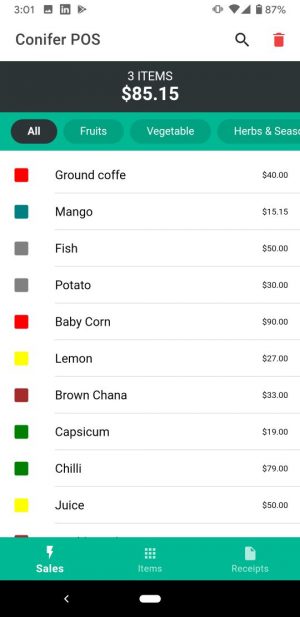Hybrids. We see this concept being applied to a plethora of mediums in our society. Hybrid cars, although becoming less popular, once appeared to be the cutting edge of transportation. Will the same fate befall on hybrid app development?
Before we jump into how hybrid app development is doing, we should learn what it is. Long gone are the days where developers had to build the same application multiple times in different programming languages. Today is the future, and we have a variety of frameworks at our disposal to fix this problem. Hybrid app development is the concept of building applications just once with the same language and being granted with the ability to launch on multiple platforms. It sounds magical doesn’t it? Let’s dive in and see how good it really is.
To get a grasp on what are the pros and cons of this kind of development we should take a look at some frameworks. The first one we’ll be examining is Xamarin, which is developed by a Microsoft owned software company. Xamarin grants users with the ability to build native apps in IOS, Android, Windows and MacOS. This feature immediately places Xamarin at the head of the pack as most other frameworks and tools don’t allow us to develop for Windows as well. Xamarin utilizes a C# codebase in order to power it’s complex set of tools. Both Mac and Windows users will be able to use this platform to its full potential. It’s no wonder that Xamarin is the leading framework for hybrid app development.
Hybrid development is attempting to cater to every developer audience. The flexibility to develop native apps in any program of your choosing does give it a substantial amount of staying power. Why would a web developer want to take a deep dive into learning Swift if they can simply use JavaScript to create the same application? Specifically designed for the front end web developers out there, PhoneGap, created by Adobe, comes into play. These developers will be able to use HTML5 and CSS3 to produce all of the designs for their project. The logical parts of the application will be left to JavaScript. Native plugins are present, which allows developers to gain access to phone cameras, microphone and more. This features does a great job of reducing one of the big qualms of hybrid development. Web developers would have the added perk of making a companion app for their website. They truly have the optimal situation for reaching a web developer.
As with anything in the developer world, hybrid app development comes with some caveats. Since we aren’t actually building apps natively in their own ecosystem we lose out on a fair chunk of performance. It just isn’t possible to reach peak optimization like we can when developing using Swift or Java natively. On top of this your user interface will be limited. Sure you can still create breathtaking UI designs with hybrid development but you miss out on functionality you only have access to natively. Developers who use XCode have an advantage here with storyboards helping them create better UI in an increasingly efficient way.
Statistically speaking, UI is one of the most important features of an app to our clients. Without a solid foundation in user interface, it’s not common for too many users to return to your app. Native app development does have a stronger background in this field, making it the star of the show. By no means does this mean that you can’t create a solid or even stunning UI with hybrid development, it simply reflects that when developing natively you’ll have more flexibility.
Let’s take quick peek at what you knowledge you would need to obtain if you were to develop natively for each platform. For IOS development you would need to know either Swift or Objective-C. For Android you would want to know Java or Kotlin. Finally for the windows phone you would need to know C#. If you were going to develop natively for each platform that’s way too much to learn on your own. This brings us to the biggest selling point of hybrid development. For the time you save developing alone, it is without a doubt here to stay. You can also check features and benefits for Hybrid app.
There is one substantial flaw however. When using hybrid app development, you put the users data at risk. This is something you really never want to do, especially as a developer. You can only utilize all the available resources you have to protect client data with native development. You won’t be left entirely defenseless if you don’t develop natively but it’s a noticeable benefit and a hard one to overlook. Similarly it can be hard to debug using hybrid development as you are essentially playing with fire hoping new bugs aren’t introduced.
Even with those negatives looming, let’s end on a good note. What do we get out of hybrid application development? Well we end up with double the app at only half the price, that will always make it harder to justify not utilizing this method. Subsequently, development times are drastically cut as you don’t have to spend the time building both. Finally hybrid development let’s less skilled developers enter the arena, requiring fewer resources and knowledge, they can reach a larger audience without a handicap.
Now we address the big picture question. Will hybrid app development last? Without a doubt, but you have to answer an even tougher question. Will you use it? If you want to build apps faster, with less money and reach a larger audience you might want to take a chance. But you must remember this isn’t a magic solution, there’s a number of reasons as prestated to build apps natively and it’s not an easy decision. Either approach you take, I hope you gained some insight!





